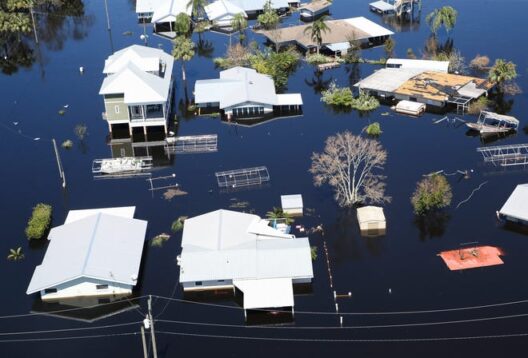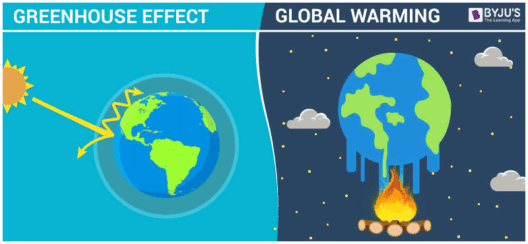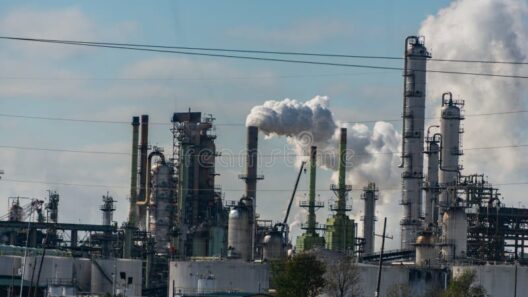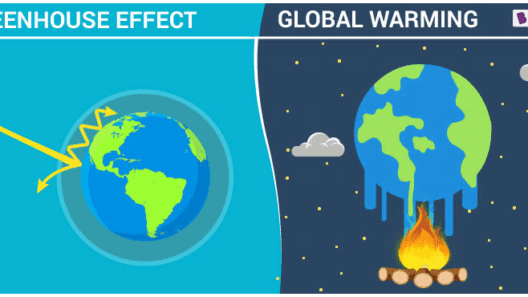As the global heated discourse surrounding climate change accelerates, one element remains a focal point—the carbon conundrum. Carbon dioxide (CO2), often vilified as the poster child of anthropogenic emissions, plays a paradoxical role in our atmosphere. While it is indeed a greenhouse gas that contributes to the warming of the planet, its importance extends beyond merely acting as a catalyst for climate change. Thus, understanding its multifaceted role is pivotal, not only for grappling with global warming but also for reimagining our environmental pathways.
The first cog in the wheel of understanding lies in recognizing the biochemical essence of CO2. It is a colorless, odorless gas, produced through natural processes such as volcanic eruptions and the respiration of living organisms. However, its modern-day narrative is overwhelmingly dominated by anthropogenic activities—ranging from fossil fuel combustion to deforestation. Indeed, human-generated CO2 emissions have surpassed 36 billion tons annually, a staggering figure that underscores our collective impact on the planet.
But what exactly does this mean for the Earth’s climate? CO2 plays a critical role in the greenhouse effect—an essential phenomenon that keeps our planet warm enough to support life. Sunlight reaches the Earth, where it is absorbed and re-radiated as infrared radiation. Greenhouse gases, including CO2, trap some of this heat, preventing it from escaping back into space. This mechanism has been paramount for maintaining temperate climates. However, the oversaturation of CO2 in the atmosphere amplifies this effect, leading to unforeseen consequences.
As the planet warms, a cascade of climate-responsive changes begins to unfold. Increased global temperatures lead to the melting of polar ice caps, which contributes to rising sea levels and threatens coastal ecosystems. Changes in precipitation patterns disrupt agricultural productivity, jeopardizing food security for millions. The increased frequency and intensity of extreme weather events—hurricanes, droughts, and wildfires—pose threats to human safety and biodiversity alike. Climate change is undeniably a multifaceted crisis, interwoven with various threads of ecological and socioeconomic challenges.
However, amidst the daunting realities, the carbon conundrum also prompts innovative solutions and shifts in perspective. One promising avenue is the concept of carbon sequestration. This approach involves capturing CO2 emissions at their source and storing them underground, effectively mitigating their release into the atmosphere. Enhanced weathering, in which minerals are chemically reacted with CO2, presents another opportunity, as it leverages natural processes to draw down atmospheric CO2 concentrations.
Furthermore, the burgeoning field of renewable energy catalyzes a paradigmatic shift away from fossil fuels. Technologies harnessing solar, wind, and hydroelectric power are proliferating globally. Transitioning to these low-carbon alternatives not only diminishes CO2 emissions but also fosters energy independence and economic resilience. As nations pivot away from fossil fuel dependency, they embark on a quest for sustainable development that balances ecological considerations with economic growth.
The potential of reforestation and afforestation initiatives cannot be overlooked in this equation. Forests act as vital carbon sinks, absorbing CO2 as they grow. Comprehensive strategies to restore degraded lands and establish new forests must be integral components of any climate mitigation plan. By engaging local communities in these initiatives, we can cultivate stewardship and foster a deeper, more equitable connection to the environment.
But perhaps the most transformative aspect of addressing the carbon conundrum is the change in individual and collective mindset. Climate change is not a solitary phenomenon but a collective challenge that demands global cooperation. Understanding and addressing the role of CO2 in a warming world requires multifactorial approaches, including political will, educational reforms, and interdisciplinary collaboration. Each of these threads must be woven into the fabric of our society for lasting change to occur.
As societal dialogues evolve, there is a burgeoning recognition of the importance of climate justice. The burdens of climate change disproportionately affect marginalized communities, who often bear the brunt of ecological degradation and environmental inequities. Advocating for the rights and voices of these communities is imperative, ensuring that sustainable solutions are inclusive and equitable. Climate activism, rooted in social justice, provides a platform for amplifying silenced voices while fostering community resilience.
The carbon conundrum beckons us to both reflect and act. The repercussions of unchecked CO2 emissions resonate throughout ecosystems, economies, and global communities. Yet, this daunting challenge also creates a fertile ground for innovation, advocacy, and transformation. In navigating the complexities of carbon management and climate change, we have an opportunity to foster a new paradigm—one where ecological integrity and human well-being coexist harmoniously.
To comprehend the dual nature of CO2 is to awaken to the possibilities that lie ahead. As communities rally to uncover solutions that mitigate carbon footprints and inspire sustainability, we embark on a transformative journey. Awareness must evolve into action, fostering protocols that curb emissions while championing ecological resilience. Ultimately, understanding the carbon conundrum is not simply an academic pursuit; it is a call to arms for individuals and societies alike to engage with the existential challenges posed by climate change.
In this interconnected world, every action matters. Whether through supporting legislation that curtails emissions, engaging in local conservation efforts, or advocating for sustainable practices, we possess the agency to contribute to a healthy planet. Embracing the carbon conundrum as a multifaceted challenge invites us to envision a future that reconciles our human aspirations with the Earth’s ecological limits. The journey to understanding and mitigating CO2’s role in our warming world is only just beginning.







